Inhaltsverzeichnis
- What is CBD oil and how safe is it for cats?
-
Areas of application of CBD oil for cats -
How CBD works in cats -
Is CBD safe for cats? - CBD oil or hemp oil cat: the differences
- Can cats break down THC?
- Research on the use of CBD oil in cats
- How is CBD oil used on cats?
- The Right Dosage of CBD Oil for Your Cat: A Detailed Guide
CBD oil for cats: experience, effects and dosage 🐱
More and more pet owners are exploring the use of CBD oil for their furry companions, especially cats. CBD or cannabidiol, a natural ingredient in the hemp plant, has gained popularity in recent years. But how safe is using CBD oil for cats really? This article not only highlights the safety aspects, but also the diverse areas of application of CBD oil for cats and provides a detailed insight into the dosage and mode of action of this natural product.
What is CBD oil and how safe is it for cats?
CBD stands for cannabidiol, a natural ingredient in the hemp plant (cannabis). The two relevant cannabinoids with therapeutic potential are CBD (cannabidiol) and THC (tetrahydrocannabinol). The key difference is that CBD has no psychoactive effects, meaning it is not intoxicating or addictive. CBD oil for dogs, like that of CALMA, offers safe use as it has a THC content of 0.0%.
IMPORTANT to mention that CBD oil for humans must under no circumstances be given to dogs as it may contain traces of THC. On the other hand, you are welcome to try your dog's.
Areas of application of CBD oil for cats
CBD interacts with the cat's endocannabinoid system (ECS) and can thus influence various body functions, including the regulation of pain, mood, sleep and inflammation.
The possible positive effects of CBD on cats include:
- Pain Relief and Anti-Inflammation: CBD shows potential for pain relief, particularly in cats with chronic pain conditions such as arthritis. It can reduce inflammation by interacting with the CB1 and CB2 receptors of the ECS, thereby inhibiting the release of pro-inflammatory cytokines.
- Calming, anxiety and stress reduction: CBD is often used to relieve anxiety and stress. It could help cats who suffer from separation anxiety or are stressed in stressful situations such as traveling. By interacting with the ECS's CB1 and CB2 receptors, CBD can help promote healthy, relaxed behavior.
- Supporting overall health and well-being: CBD could promote the health of cats by supporting the immune system and counteracting stomach and digestive problems. This action helps keep the digestive system in a healthy state.
Pain Relief: When there is pain or inflammation, the ECS is activated to restore homeostasis. CBD supports these processes by interacting with the CB1 and CB2 receptors of the ECS, which can restore balance and reduce inflammation.
CBD could help cats with a number of health problems, including
- Arthritis and joint pain
- Kidney diseases such as kidney failure
- Pain caused by cancer and tumors
- Pain after operations
- Supports wound healing or infections
- Inflammation of the gums
- Gastrointestinal diseases such as inflammatory bowel disease (IBD)
Particularly for chronic pain conditions such as arthritis, CBD can not only relieve pain symptoms but also combat the underlying inflammation, which can lead to greater mobility and an improved quality of life.
Anxiety and Stress: Cats can suffer from anxiety and stress just like humans. CBD oil can help restore balance to various physiological processes. Since the ECS also regulates mood and emotional balance, CBD can indirectly have a calming and anti-anxiety effect in cats. CBD also has anti-inflammatory properties that can help reduce stress and anxiety. Cats can be anxious or stressed in a variety of situations, and their reactions range from subtle changes in behavior to obvious signs of agitation and fear.
CBD could therefore help cats in the following situations:
- Separation anxiety or anxiety in the absence of the owner
- Fear of traveling, for example when driving or visiting the vet
- Stress caused by changes in the environment such as moving or introducing new pets
- Restlessness and nervousness around loud noises such as fireworks or thunderstorms
- Fears due to age or health problems
- generally aggressive or disturbed social behavior
Epilepsy and Seizures: There is increasing evidence that CBD oil can reduce seizures and epilepsy in cats. This has led to growing support from veterinarians considering this alternative. One of the possible effects of CBD on the ECS is to reduce the neuronal excitation that occurs during epileptic seizures. During a seizure, nerve cells in the brain become overactive and fire electrical signals uncontrollably. This can lead to uncoordinated movements, muscle twitching and even loss of consciousness. Research shows that CBD has the potential to reduce the frequency and severity of seizures in cats. Some studies have observed significant improvements in cats with epilepsy and other epileptic disorders treated with CBD. However, the exact mechanism by which CBD reduces seizures is not fully understood.
Appetite stimulation and nausea: Cats suffering from loss of appetite or nausea may benefit from CBD oil. It can increase appetite and reduce nausea, which is especially important if the cat has health problems.
Immune system regulation: CBD oil is also said to strengthen and modulate a cat's immune system by interacting with the endocannabinoid system (ECS). By modulating CB2 receptors and inhibiting pro-inflammatory cytokines, CBD is said to help reduce inflammation and keep the immune system balanced.
How CBD works in cats
It is important that the supplementary food does not contain terpenes, as cats cannot break down terpenes because their metabolism is not designed for this. This means that the terpenes remain in the cat's body for longer and can potentially lead to life-threatening poisoning. Therefore, it is important to differentiate between the oil for personal use and that for pets.
The first signs of terpene poisoning can be disorientation, movement disorders or increased salivation. If you experience such symptoms, you should consult a veterinarian immediately.
How quickly does CBD work in cats and dosage?
Most cats feel the effects of CBD within 20 to 30 minutes of ingesting it. The maximum concentration of CBD in the bloodstream is reached after 1-4 hours, which is also when the effects are strongest. The initial effect occurs quickly, while the maximum effect only occurs after 1-4 hours.
Is CBD safe for cats?
Experience shows that CBD is classified as safe by the WHO. Side effects are rare but may include vomiting or diarrhea. It is advisable to consult a veterinarian before taking it to rule out possible interactions.
There are various aspects that should be taken into account when purchasing CBD oil for cats:
Quality: Make sure that the CBD oil comes from a trustworthy manufacturer and does not contain any impurities or harmful substances.
Hemp source: Make sure the CBD oil comes from organically grown hemp that is free of pesticides, herbicides, and other chemicals.
Concentration: Check the CBD concentration of the oil to ensure it is sufficiently potent. The concentration is expressed in milligrams (mg) per milliliter (ml).
THC Content: Make sure the CBD oil has a THC content of less than 0.2%. Higher levels of THC can produce an intoxicating effect on your cat.
Carrier oil: The carrier oil you choose has a big impact on the taste. Hemp oil is popular, but coconut oil or olive oil can also be used.
Additives: Avoid CBD oils with unnecessary additives such as artificial flavors or preservatives to get the purest oil possible.
Our products at CLAMA were developed specifically for cats. We make sure that they consist of 100% natural ingredients, contain 0.0% THC and are well tolerated by your cat.
CBD oil or hemp oil cat: the differences
Both CBD and hemp oil are derived from the hemp plant, but from different parts.
CBD is obtained from the flowers and leaves, which still contain the cannabinoids, and is an extract that is mixed with a carrier oil. It is used to relieve various symptoms of illness.
Hemp oil, on the other hand, is obtained from the seeds of the plant and only contains small traces of cannabinoids. Hemp oil is primarily used in cooking because it contains many essential fatty acids such as Omega 3 and Omega 6. Hemp oil is also often used in cosmetics because of its high vitamin E content.
Can cats break down THC?
It is a common belief that cats do not have the enzymes necessary to break down THC. Since THC is the psychoactive ingredient in cannabis that is responsible for the high, this could mean that a cat once intoxicated by consuming cannabis would remain in that state for life. Any cat owner whose pet accidentally ingests cannabis has consumed, but can confirm that this is not the case. The myth that cats cannot break down THC has also been refuted by numerous studies.
Can cats get high?
Yes, cats can also become intoxicated. It is not necessary that they eat the grass, just that they are exposed to direct smoke is sufficient. The effects of cannabis can cause cannabis poisoning in cats, which can manifest itself with the following symptoms:
|
|
If your cat has accidentally ingested cannabis and is exhibiting one or more of these symptoms, it is advisable to take him to the vet immediately.
Research on the use of CBD oil in cats
CBD hemp oil is often used on cats. Various studies are concerned with determining the optimal dosage of CBD drops for cats, but so far no adverse effects of the cannabinoid have been proven. However, it is important to note that comprehensive long-term studies on the long-term effects of CBD on cats are lacking.
Current research is focused on understanding CBD's potential as a safe dietary supplement for cats. There are positive reports from pet owners and veterinarians about the potential benefits of CBD for cats, particularly in terms of pain relief, anxiety reduction, and improvement in overall well-being.
Although no harmful effects have been identified so far, experts emphasize the need for further studies to better understand the long-term effects of CBD on cats. This is particularly important because each cat can react individually and the long-term effects of CBD on various aspects of health have not yet been sufficiently researched.
How is CBD oil used on cats?
There are three different ways to administer CBD oil:
Directly under the tongue: This is a direct method in which the CBD oil is administered directly under the animal's tongue using a pipette or dropper. This allows the oil to be quickly absorbed through the mucous membranes.
Add to food: CBD oil can also be added to food. This is a practical method, especially if your pet does not accept the oil under the tongue. Make sure to mix the oil evenly into the food to ensure even absorption.
Drizzle in treats: Another option is to add CBD oil to treats or snacks that your pet enjoys. This makes administration more pleasant and can be particularly useful if the animal does not want to ingest the oil directly.
It is important that you follow CBD oil dosage recommendations and ideally consult a veterinarian to ensure you are using the correct amount for your pet's needs.
The Right Dosage of CBD Oil for Your Cat: A Detailed Guide
The optimal CBD dosage varies from cat to cat and depends on several factors, including body weight, health status, strength of the CBD oil and intended use. There is no general dosage rule for all cats. Therefore, it is necessary to find out the right dosage for your cat.
It is recommended to start with a small dose and gradually increase it every few days until the desired effects of CBD oil occur. Then stay at this dose as long as the positive effects last.
Start of dosage:
Start with one drop of CBD oil per day and increase the dose by another drop every three days. The CBD oil used should have a maximum concentration of approximately 5% CBD.
Slowly increase and adjust the dosage:
Give your cat a drop of CBD oil once a day for the first three days. Watch her reaction. If there is no significant improvement after the first three days, increase the dose to two drops per day for the following three days. The dose can be divided into morning and evening to optimize the effect throughout the day.
This procedure is repeated every three days, increasing the dose by one drop each time.
Find and stick to the optimal dose:
If you find that the CBD oil has a positive effect on your cat, you have found the right dose. This can often be seen in the cat's behavior. The daily dose found is retained, e.g. 4 drops in the morning and 3 drops in the evening.
If you have reached a dose of 12 drops per day and there is still no improvement, it is advisable to re-evaluate the situation. It may make sense to seek expert advice.
Here you can go directly to our CALMA cat CBD oil 🐱


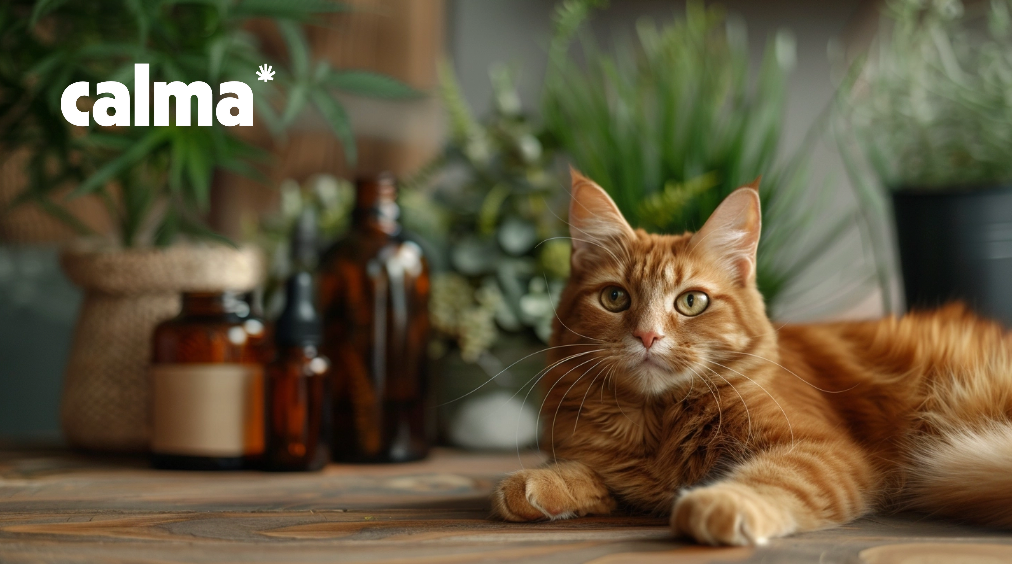
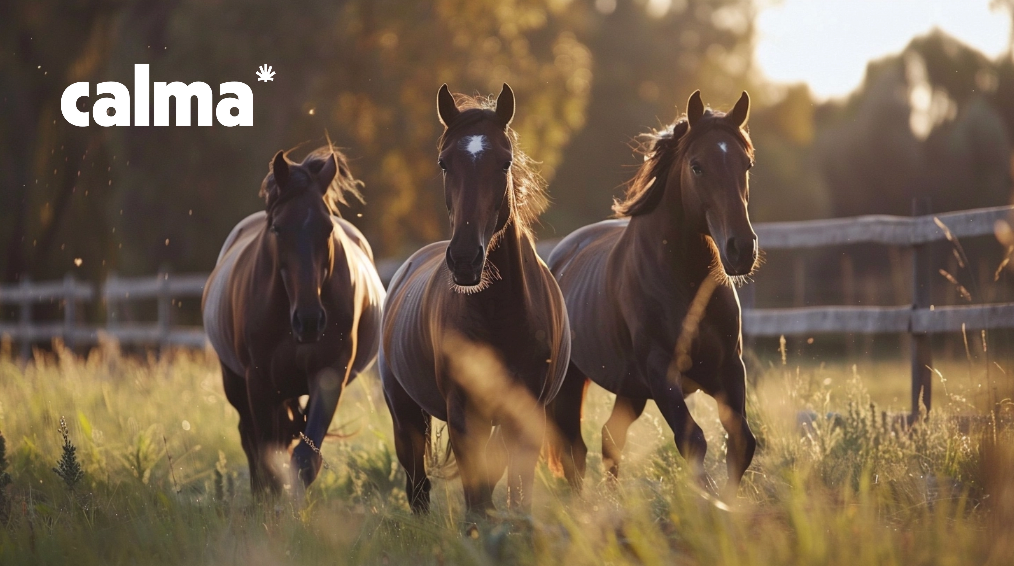
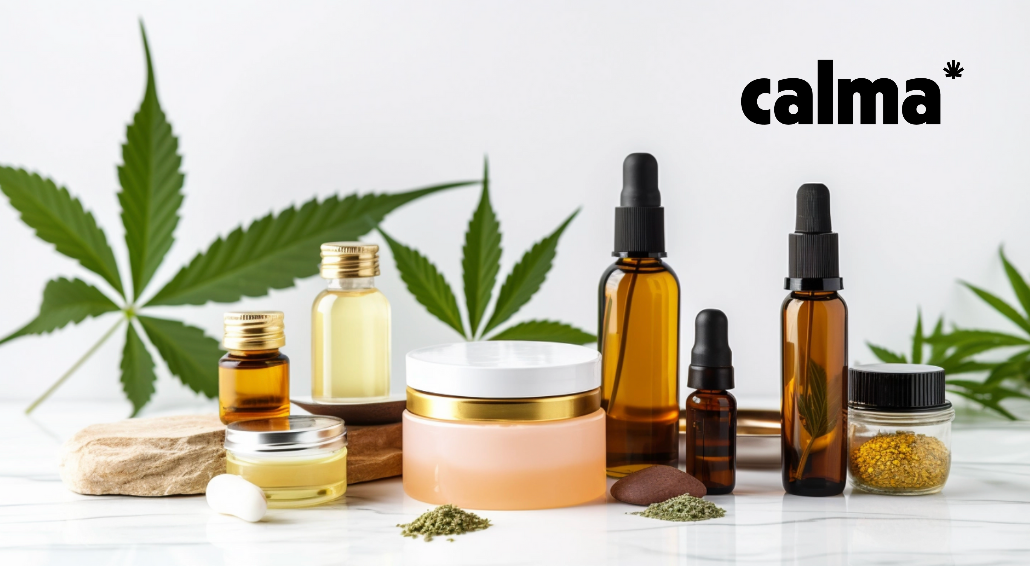

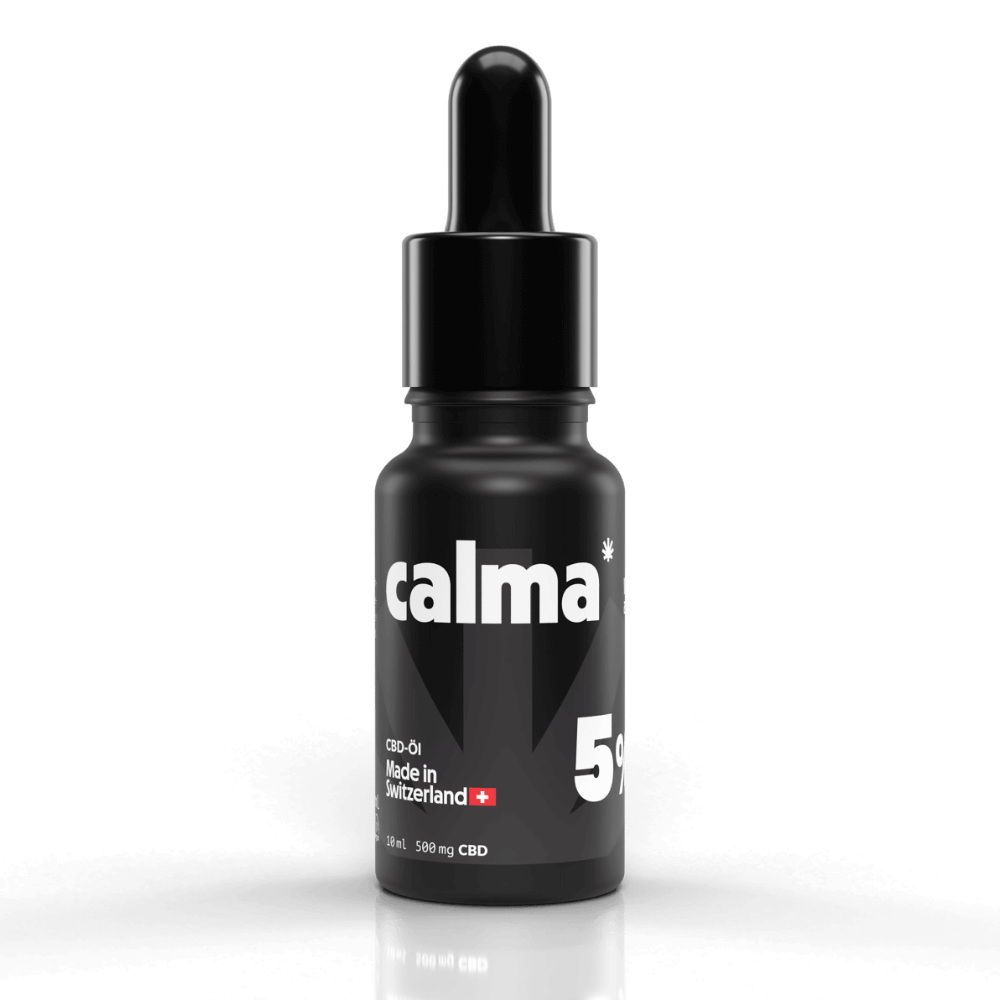
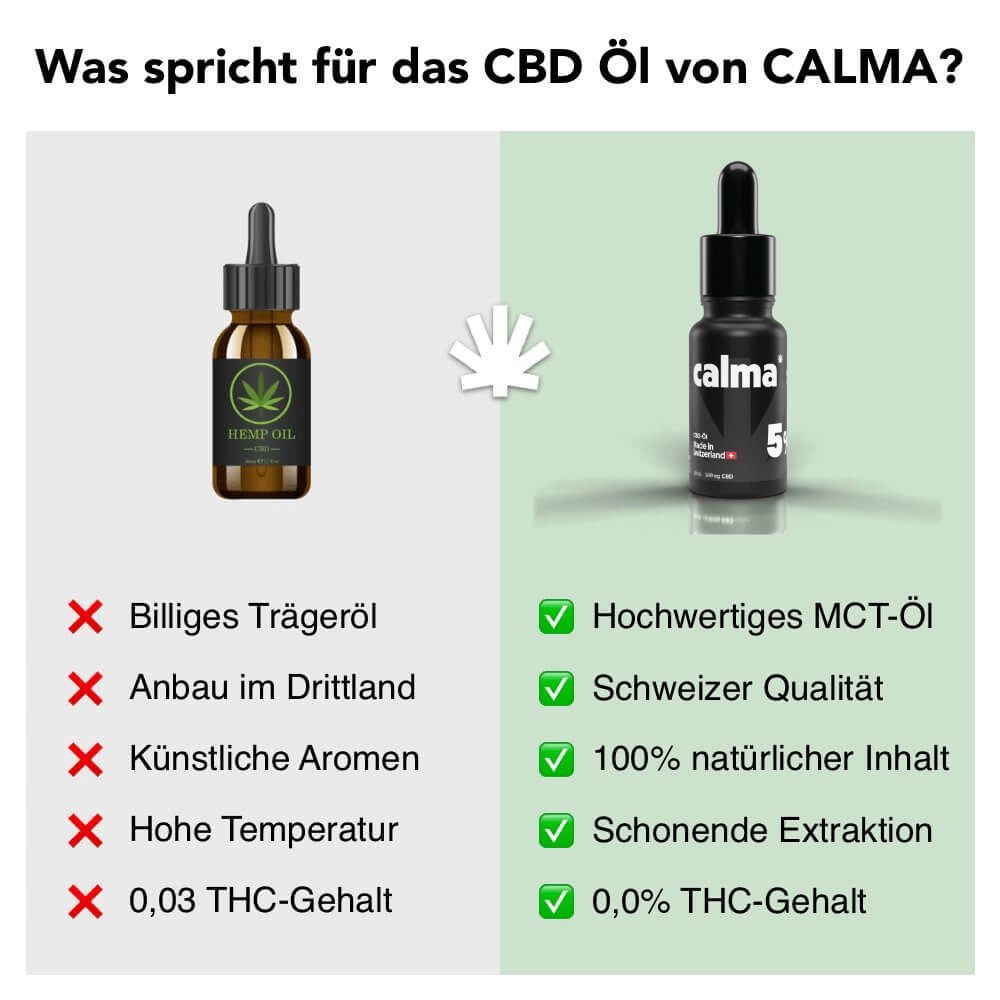
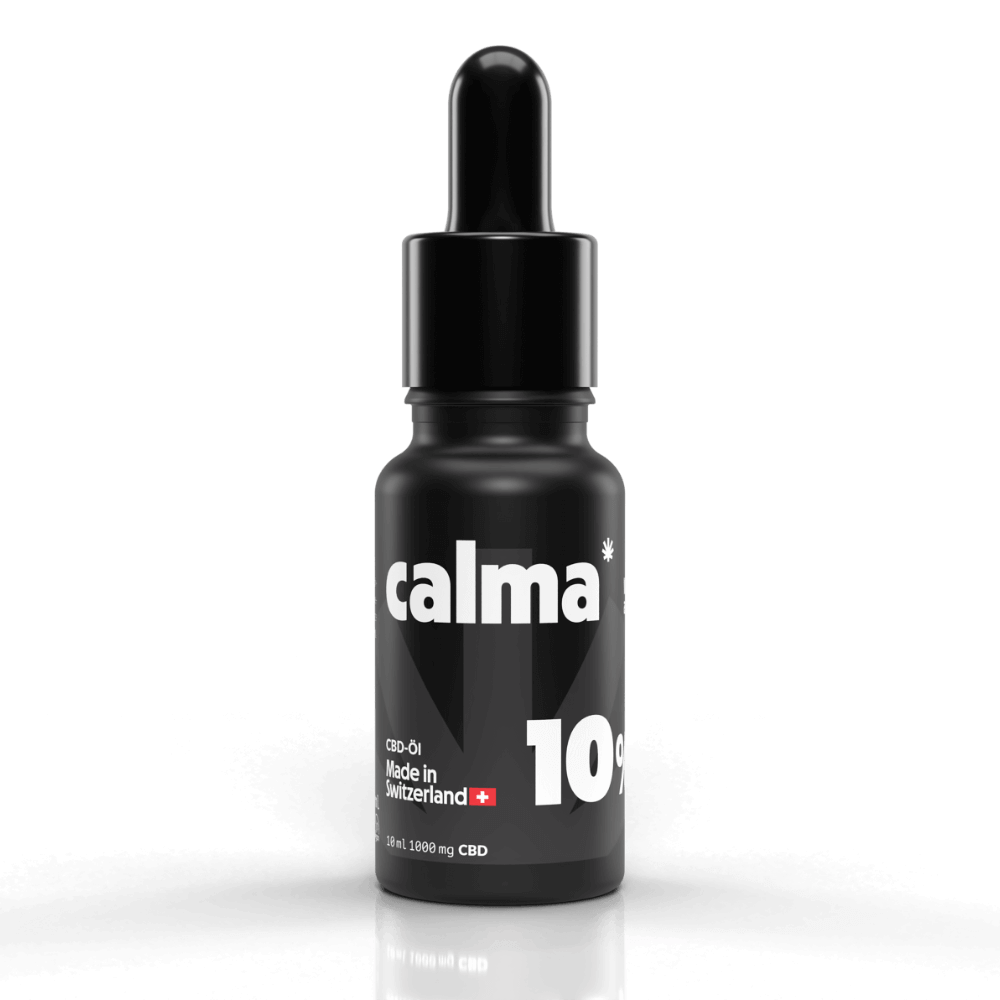
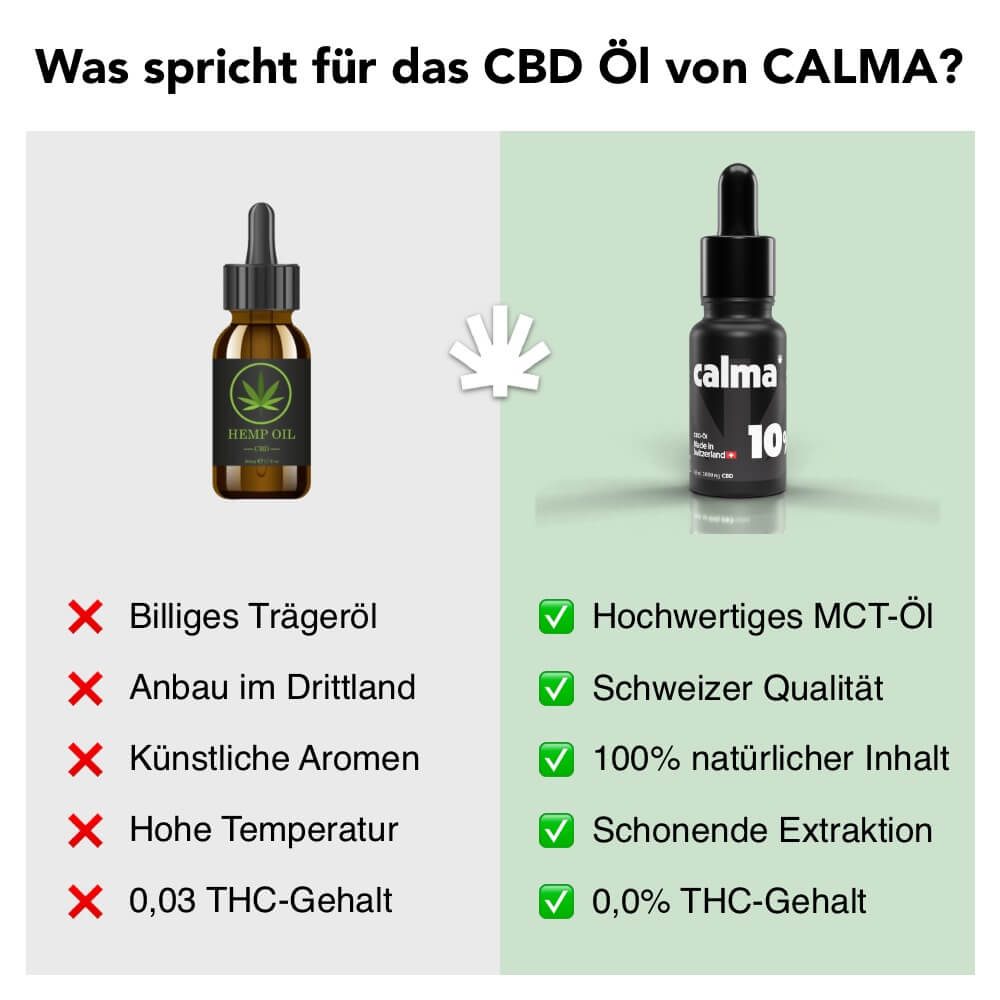
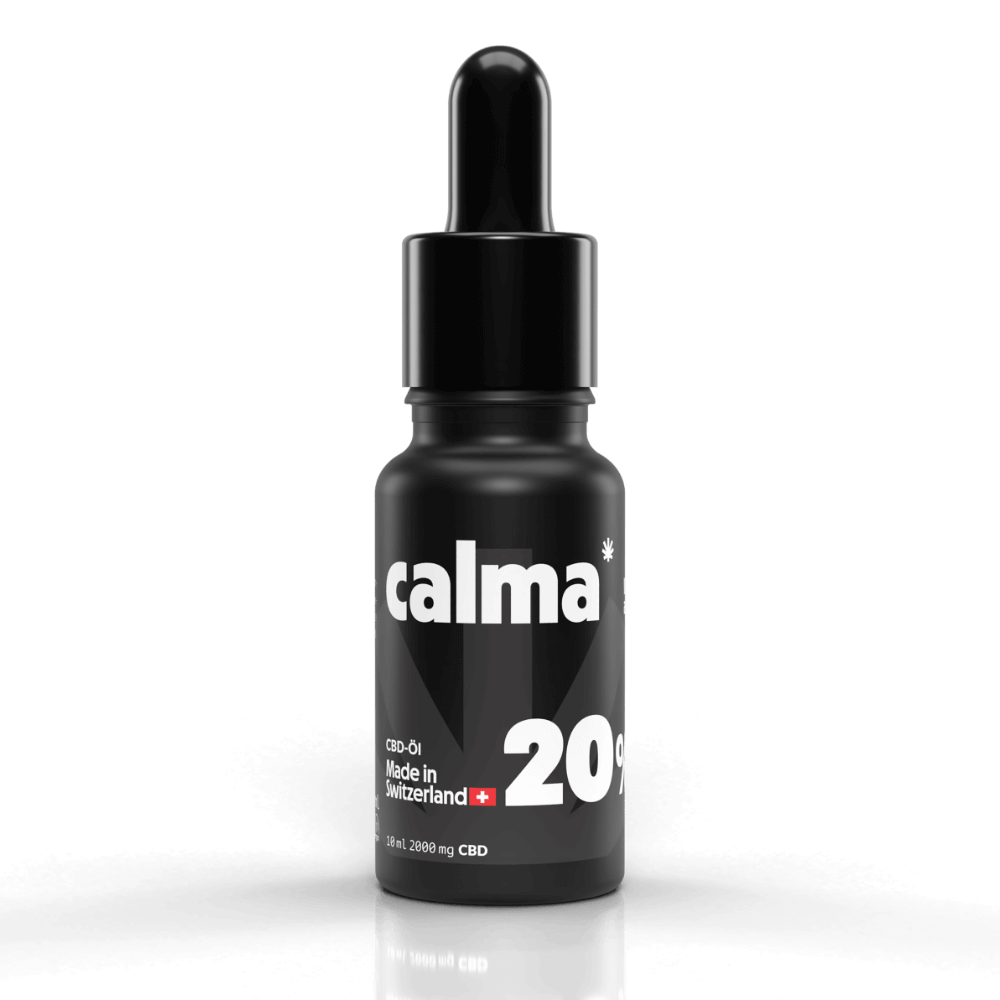

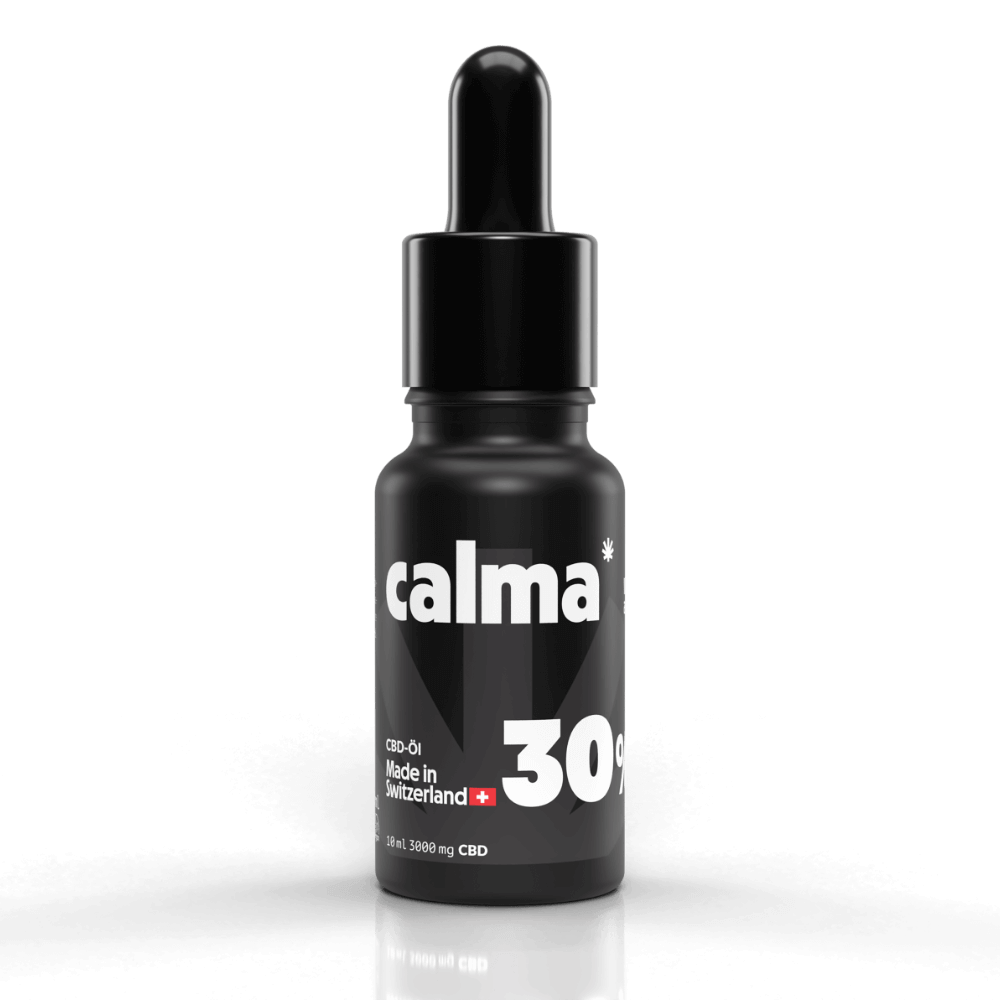
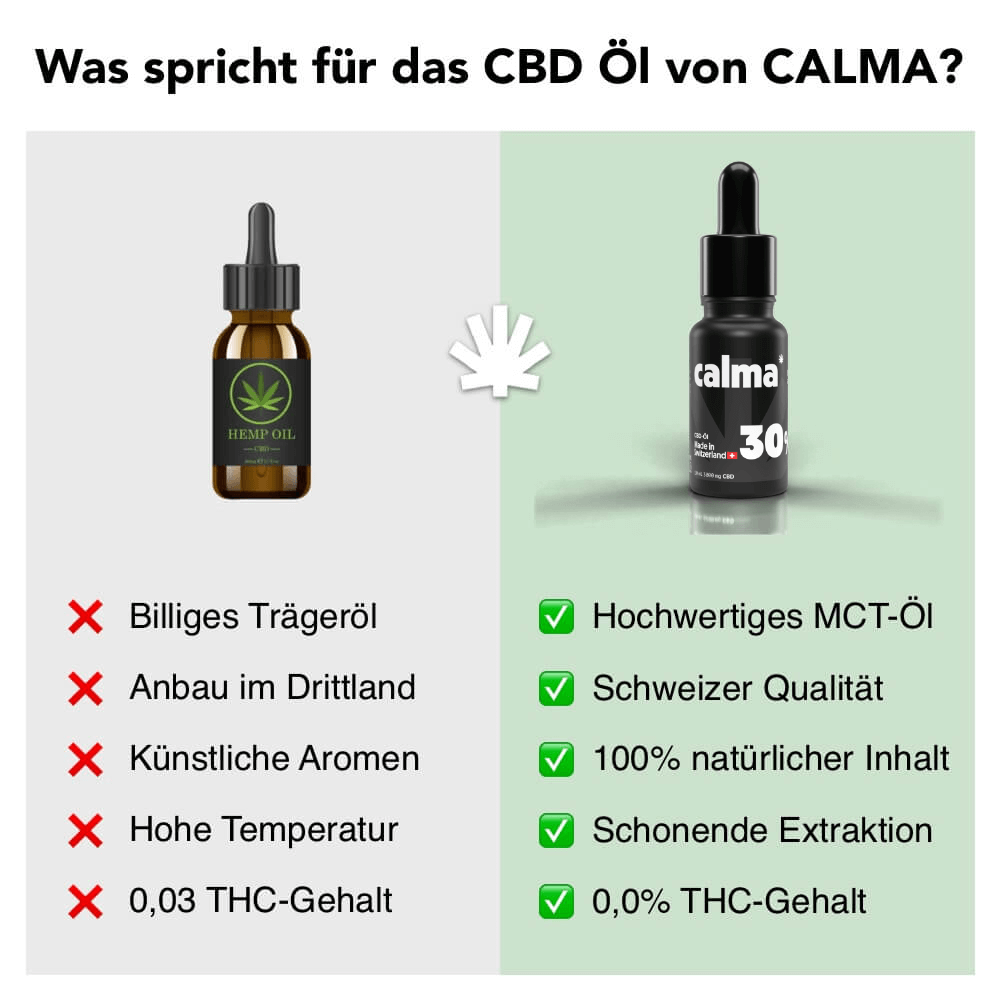
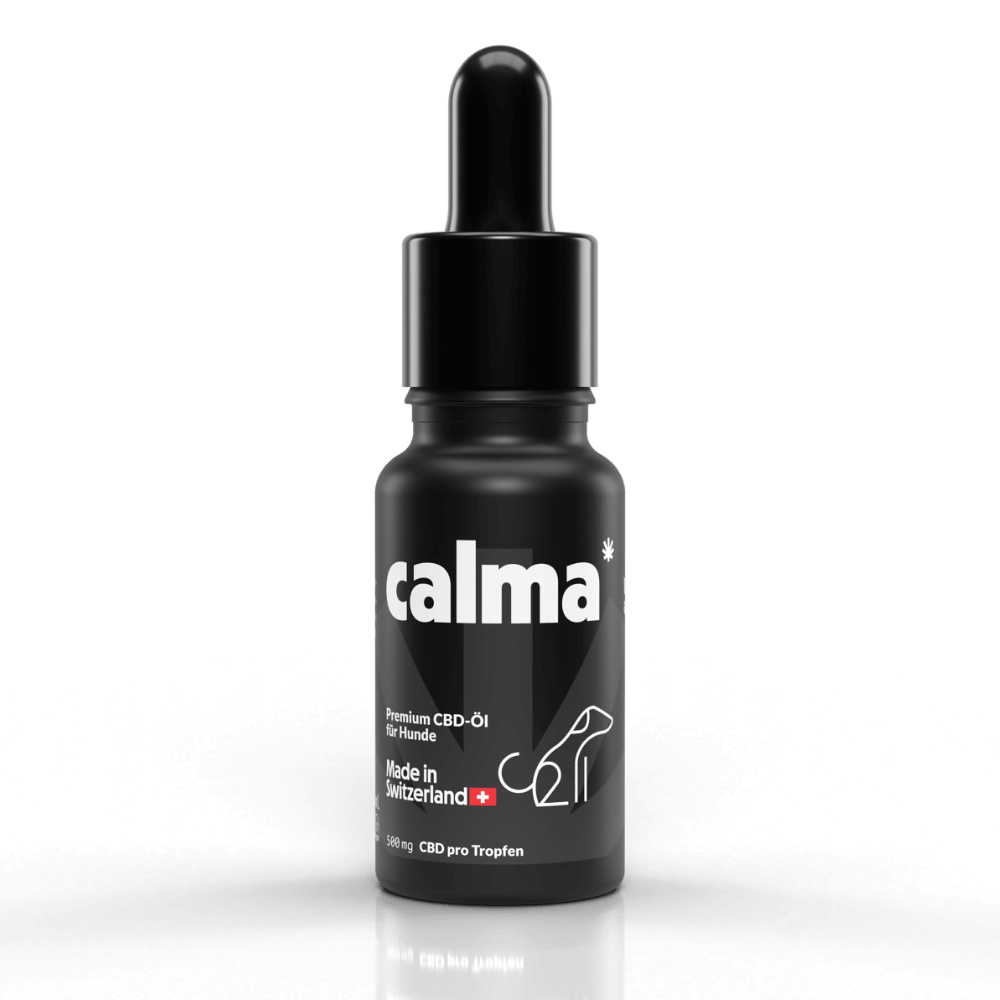

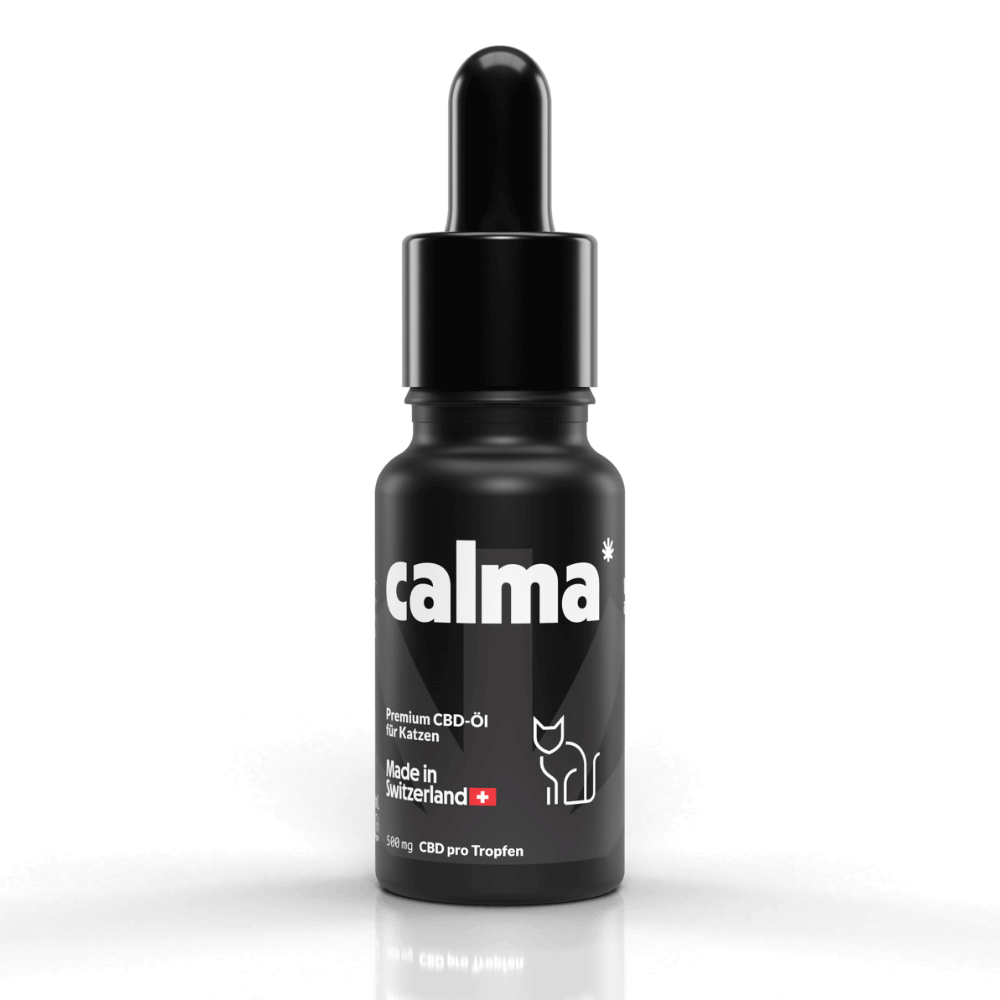
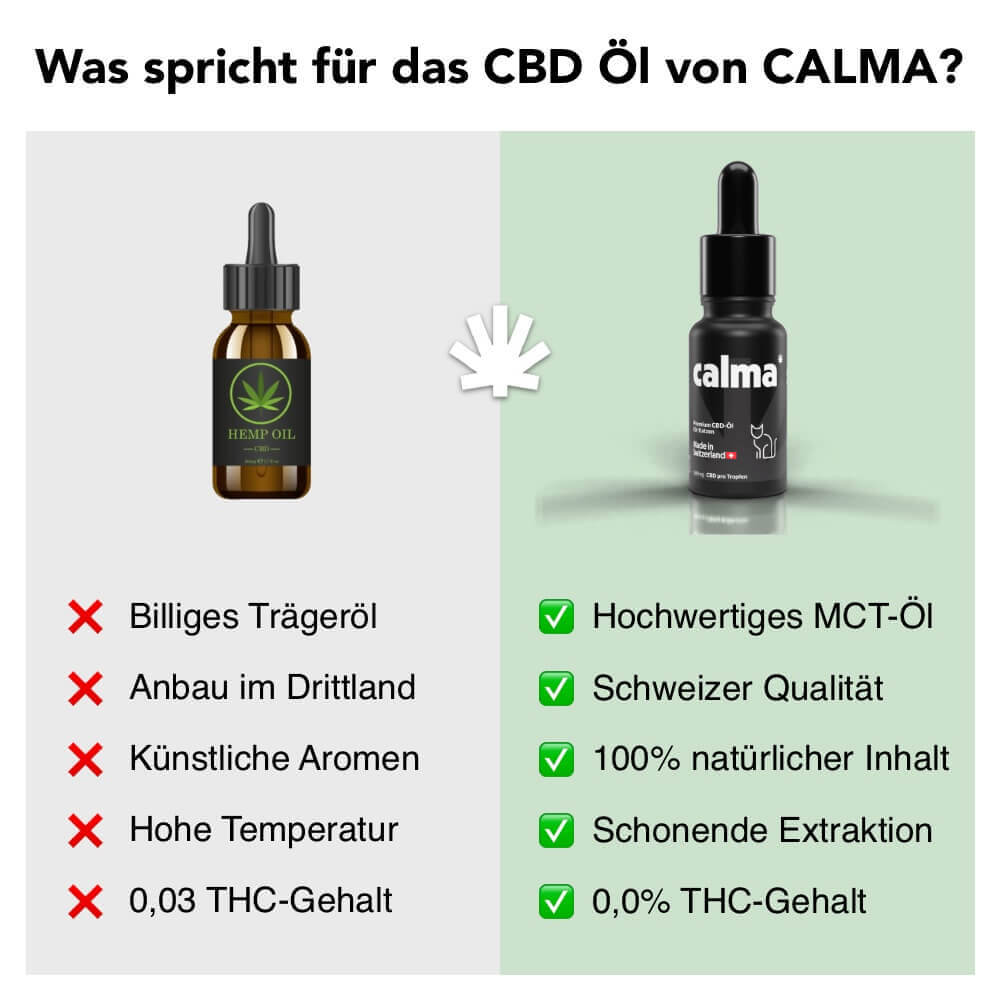
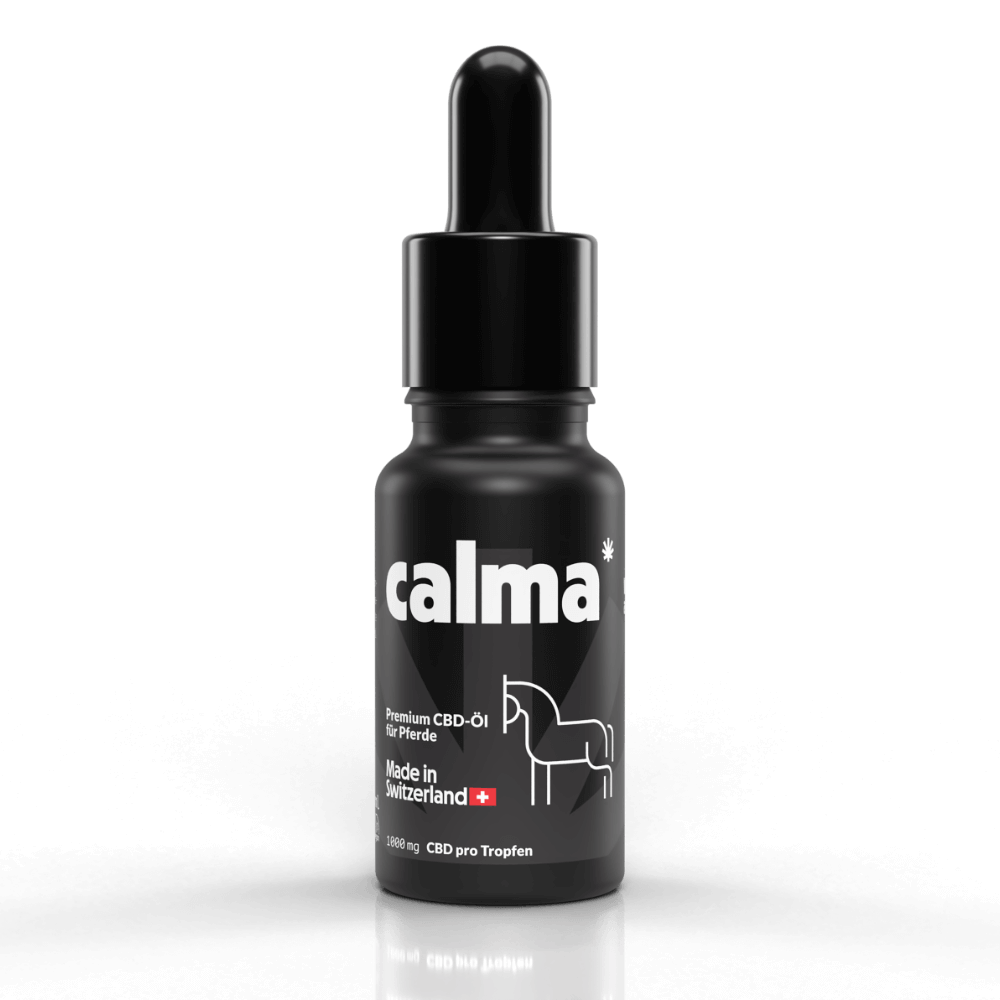
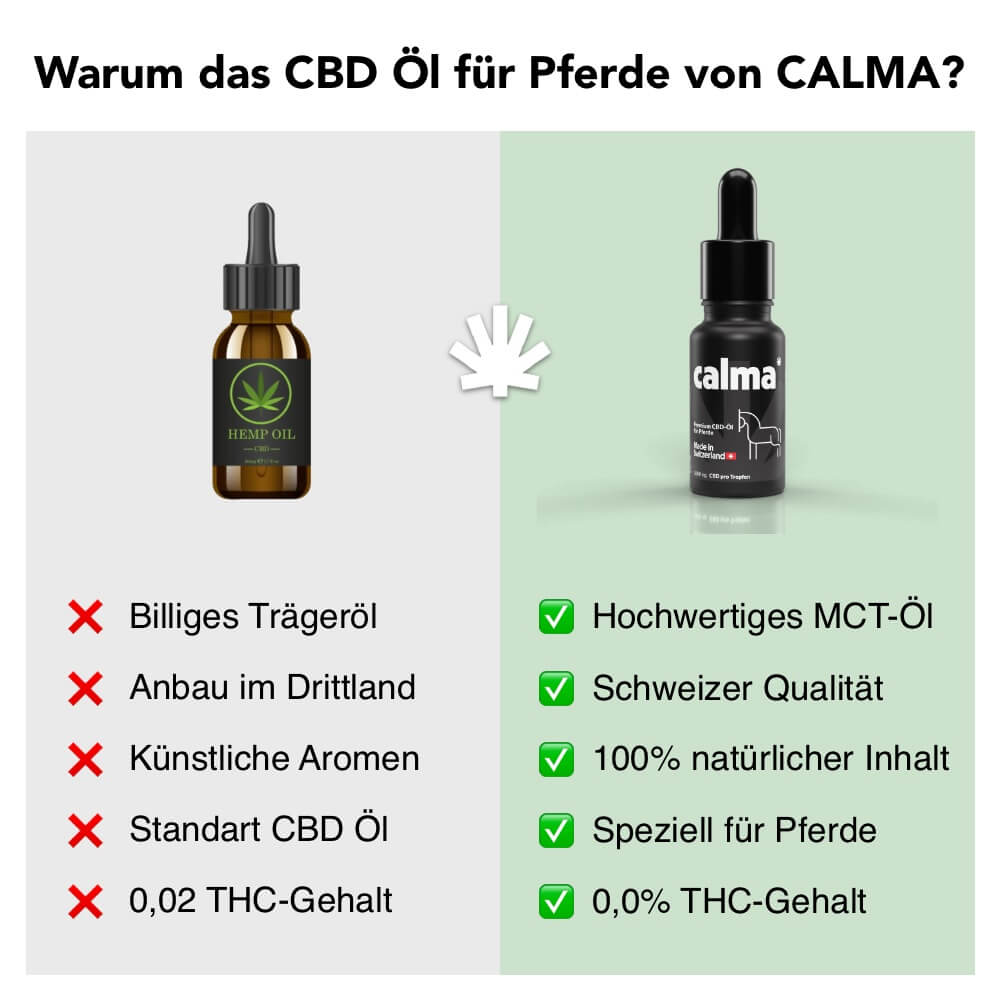
Leave a comment
All comments are moderated before being published.
This site is protected by hCaptcha and the hCaptcha Privacy Policy and Terms of Service apply.